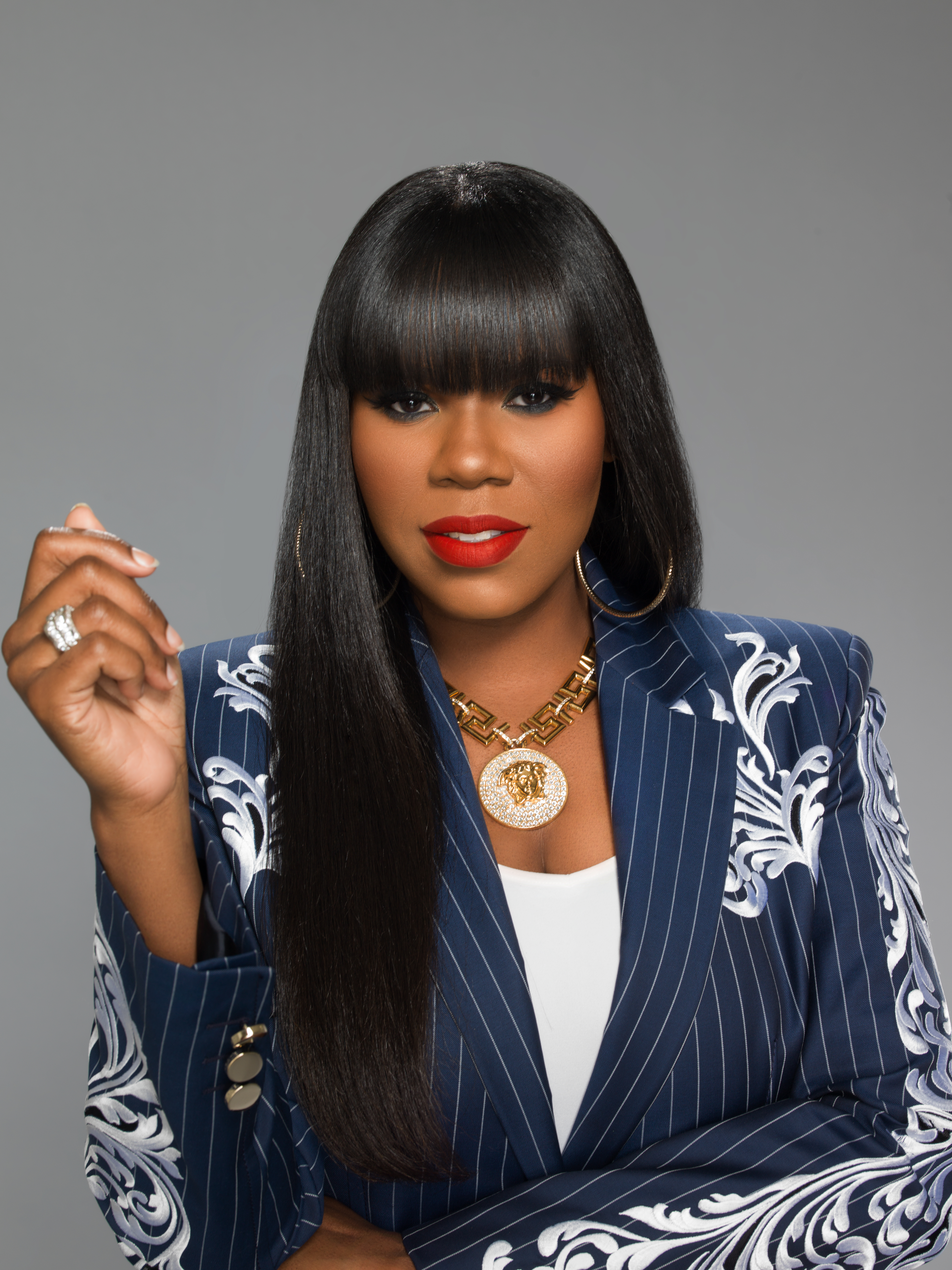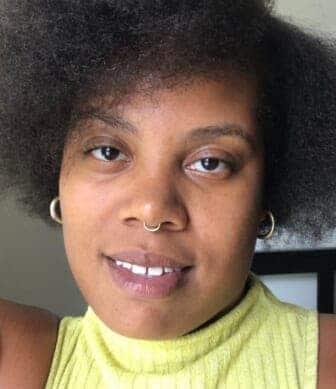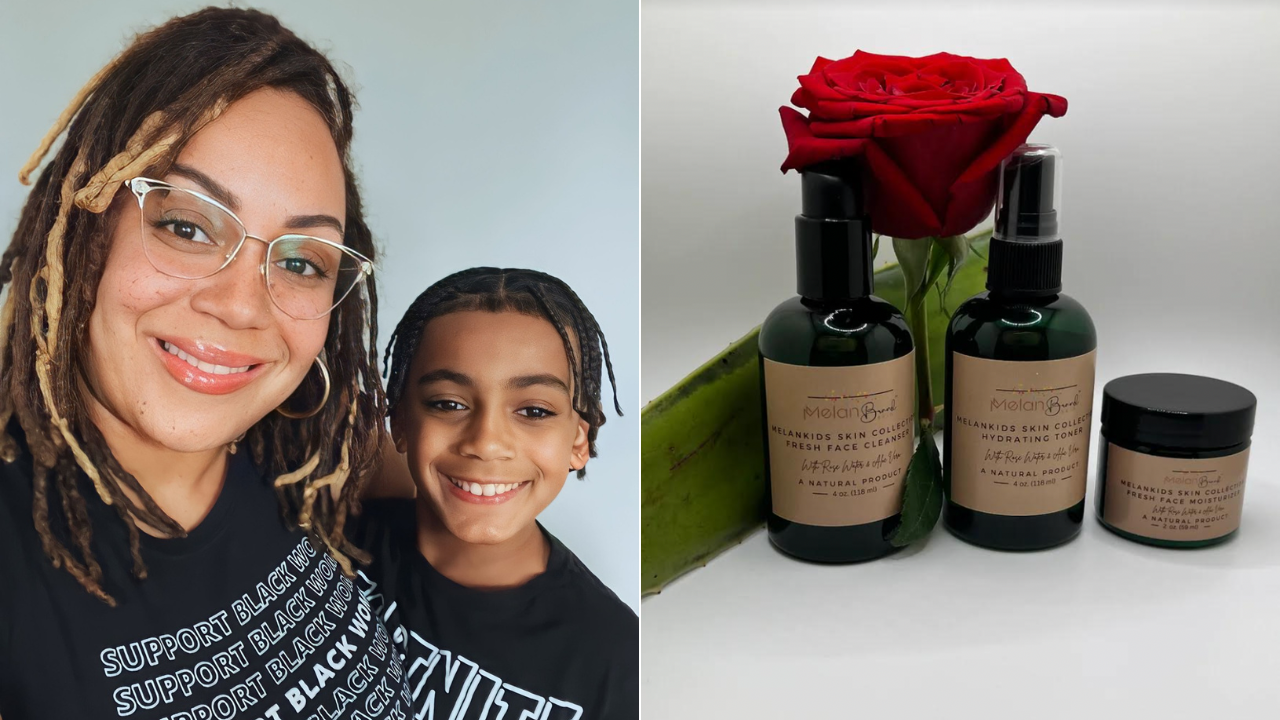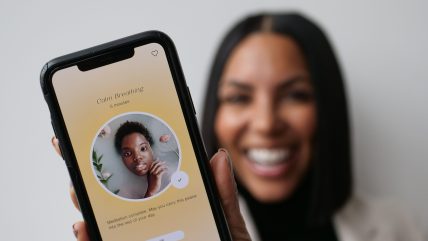Beauty entrepreneur and Mane Choice founder Courtney Adeleye hires 1,200 women
Founder of Mane Choice Courtney Adeleye is serious about creating new entrepreneurs through the creation of Olbali.
Black Business Month, commemorated annually in August, is coming to a close, but not without one major win for a Black-owned business. One Black female CEO has empowered over 1,200 women, most of them Black, with the tools to be their own bosses.
Courtney Adeleye, founder of Mane Choice haircare, has been empowering women to become entrepreneurs through one of her latest ventures, Olbali, a direct-seller company specializing in wellness products. During Black Business Month, Adeleye sat down with theGrio to discuss how she built the business and is now including many others in the journey.

Olbali, Adeleye said, emerged in 2020, combining a handful of brands the beauty entrepreneur was developing. Through Olbali, consumers can shop coffee, organic PH-balancing sanitary products, multivitamins, and more. They can also choose to sell these products as direct-selling associates of the brand, launching their own businesses.
“The industry calls them ‘independent distributors.’ I like to call them ‘business associates,’” said Adeleye of the 1,200, mostly Black women across the country who are currently selling Olbali products through direct marketing approaches.
“When I hear ‘independent,’ that means you’re on your own, and that’s not what Olbali stands for,” she said. “We literally are locking arms with [this group of] mainly women and teaching them and educating and partnering with them. So they are ‘independent,’ but at the same time, they’re in business for themselves, not by themselves.”
The idea to launch Olbali struck Adeleye in the middle of the night. At the time, she had a few other brands already on the market, including Cool Coffee Clique and Foolproof Body supplements. Amid lockdowns and mass layoffs, she also took stock of how many individuals were struggling who might also have an entrepreneurial spirit. Adeleye realized she could create a company to sell her expanding suite of brands using a direct-selling model to create opportunities for others.
“It’s about creating opportunity,” she said. “It’s about infusing resources and education into people they can have with them for the rest of their lives.”
Olbali joins a long legacy of direct-selling brands with a cosmetic and wellness focus, including mainstays Mary Kay and Avon. However, Olbali remains one of the only direct-selling companies run by a Black woman. Beyond that, whether they are a seasoned direct-selling veteran or a novice, “they’re saying that it’s different here,” Adeleye said.
The reason being, she said, “It’s more of a community here. It’s not so corporate that they can’t ask questions; they never see the person that owns the company. They feel as if the person who sold a million dollars versus the person who sold $200 aren’t treated differently.”
The community atmosphere of Olbali is a point of pride for Adeleye, who notes that Olbali’s conferences for business associates receive rave reviews, with many noting how in-depth and valuable the information they’ve gained. Adeleye also makes house calls; she frequents direct-selling events hosted by Olbali’s business associates, whether the host has gathered just two people together or hundreds of thousands.
“They’re like, ‘There’s no way the owner would have come to one of these events.’ But for me, it was important to do that to show it’s not that type of party,” she said.
She also stressed that Olbali is accessible to many. Business associates do not have to buy products or put any money upfront in any way to get started. Adeleye said she thinks the accessible entry point is part of why her business associates are mainly Black women.
“We’re the ones that are least funded. We’re the ones that people partner with the least. So to be able to have that accessibility for someone who has done some things that they’re trying to do is very attractive and smart,” Adeleye said.
She added that through Olbali, more Black women have realized they can be a part of the largely white direct-selling world.
“You don’t have to conform. You don’t have to come to a company who’s making cosmetics that don’t have your shade. We’re inclusive. We have products for everybody. You don’t have to come here and change who you are,” she said. “We can celebrate you right where you are.”

Kay Wicker is a lifestyle writer for theGrio covering health, wellness, travel, beauty, fashion, and the myriad ways Black people live and enjoy their lives. She has previously created content for magazines, newspapers, and digital brands.
TheGrio is FREE on your TV via Apple TV, Amazon Fire, Roku, and Android TV. TheGrio’s Black Podcast Network is free too. Download theGrio mobile apps today! Listen to ‘Writing Black’ with Maiysha Kai.


